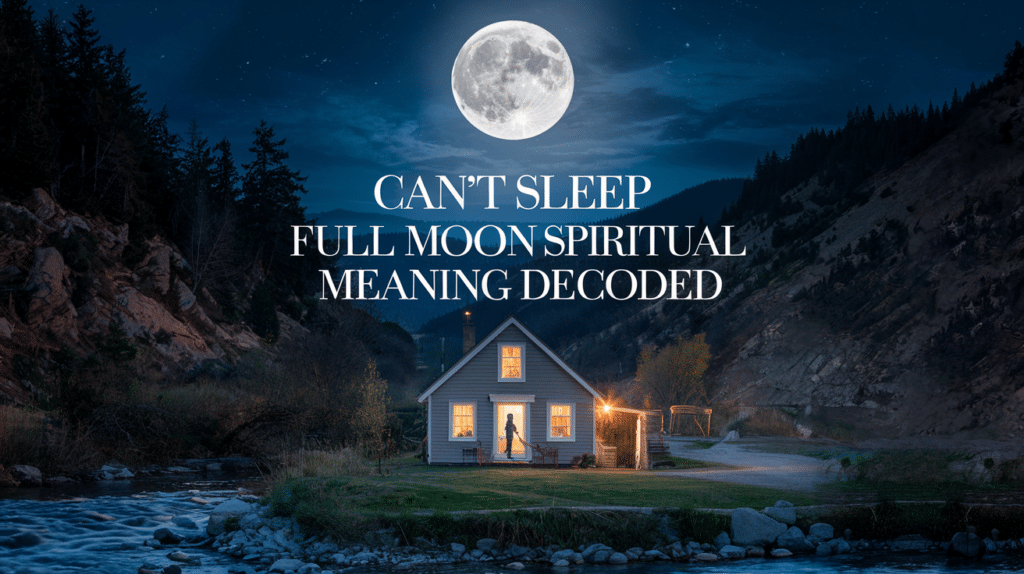You’re lying in bed, staring at the ceiling. The world outside is quiet, but your mind won’t settle. And yes, it just so happens to be a full moon. Coincidence? Maybe not.
This isn’t just about light sneaking through the curtains. For centuries, the full moon has been tied to energy shifts, heightened emotions, and spiritual awakenings. When you can’t sleep during a full moon, your spirit may be picking up on something greater.
In this blog, we’re breaking it all down. What it really means when sleep escapes you under that glowing sky.
From ancient beliefs to spiritual nudges and energy spikes, we’re decoding what your soul might be trying to say.
Ready to stop wondering and start understanding? Let’s unearth the mystery.
Spiritual Meaning of a Full Moon
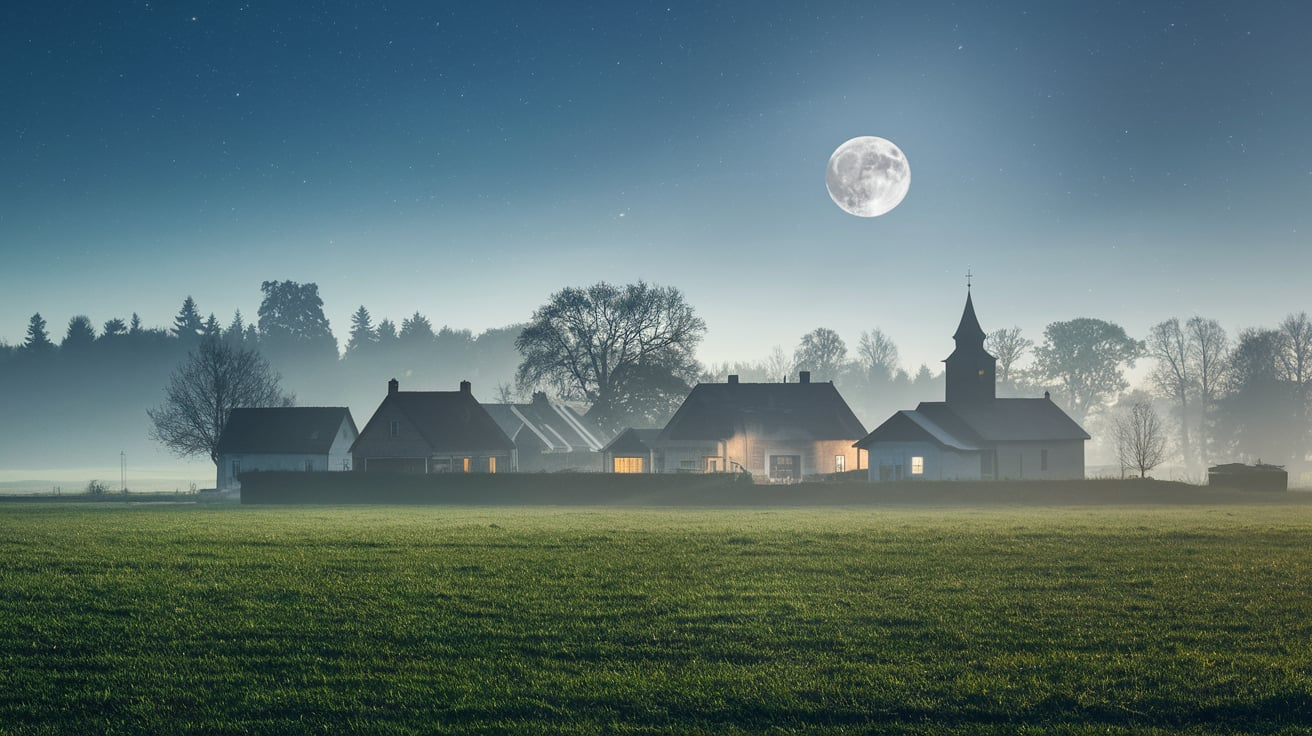
Have you ever felt a strange pull during a full moon? You’re not alone. This brilliant celestial body has spiritual significance that might explain your experiences.
When you gaze at a full moon, you’re witnessing what many traditions consider a time of heightened intuition.
Your inner wisdom becomes more accessible, and you might notice thoughts or emotions surfacing that were previously hidden. This is the moon illuminating your subconscious.
You can harness this energy for your benefit. Many find this the perfect time for setting intentions or performing personal rituals. Your manifestation practices become more powerful during this lunar phase.
The moon’s cycles mirror your life rhythms. Just as it waxes and wanes, you, too, experience periods of growth and retreat. When you recognize these natural patterns, you can work with them rather than against them.
Your body, like the ocean, responds to lunar impact. The moon governs water, including the water within you. This connection might explain why your emotions feel intensified during a full moon.
If you find yourself wide awake during a full moon night, spiritual traditions would suggest you’re attuned to cosmic energies. Rather than tossing and turning, you might use this wakefulness for reflection or creativity.
The full moon offers you a moment to recognize your place in the universe.
It connects you to ancient wisdom and reminds you that you’re part of something much larger than yourself.
Historical Perspectives on Full Moon Sleeplessness
Throughout history, your ancestors likely experienced the same restlessness you feel during a full moon.
Ancient civilizations across the globe documented this phenomenon, weaving it into their cultural narratives and spiritual beliefs.
Here’s how different cultures viewed full moon sleeplessness:
- Ancient Romans: Attributed sleeplessness to Luna’s divine impact
- Medieval Europeans: Believed supernatural activity increased during full moons
- Native American tribes: Considered moonlit wakefulness a spiritual gift for ceremonies and vision-seeking
Medieval European folklore might have warned about increased supernatural activity during the full moon. On these luminous nights, you might have hung protective herbs by your bedside or recited special prayers before attempting to sleep.
Your inability to sleep wasn’t seen as insomnia but as spiritual awareness of the heightened energies around you.
Many Native American tribes viewed your wakefulness during the full moon as a gift rather than a curse. You were considered fortunate to receive the moon’s medicine and wisdom during these times.
Traditional healing systems developed specific approaches to full moon sleeplessness:
- Traditional Chinese Medicine: Recognized increased yang energy during full moons
- Ayurvedic tradition: Prescribed cooling foods and calming rituals
- European folk remedies: Included protective herbs and special prayers
Throughout history, sleeplessness has been recognized as a natural response to cosmic impacts rather than a modern sleep disorder.
The Full Moon’s Impact on Sleep Patterns
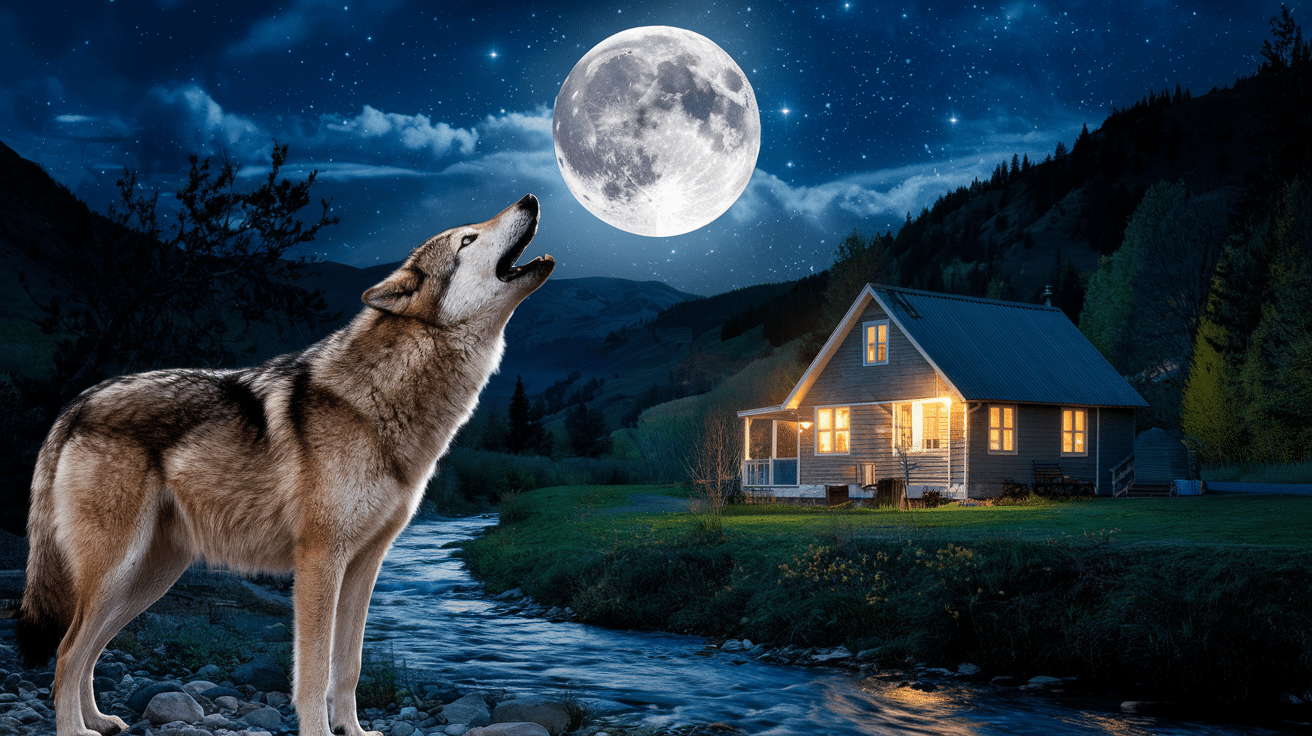
You might have noticed that your sleep feels different when the full moon brightens the night sky.
This isn’t just your imagination. For centuries, people have reported disrupted sleep patterns during full moons, and modern research has begun to unearth this connection.
Your body naturally responds to light, and the full moon provides significantly more illumination than other lunar phases. Even with curtains drawn, your body may still sense these subtle light changes, affecting your melatonin production, the hormone that regulates your sleep cycle.
A study published in Current Biology found that during full moons, participants took about five minutes longer to fall asleep and experienced approximately 20 minutes less sleep overall. You might also spend less time in rich sleep during these nights, explaining why you wake up feeling less rested.
Your brain waves show interesting patterns during full moons, too. Research indicates you may experience shorter periods of rich sleep and altered REM sleep, the stage where dreaming occurs. This could explain why your dreams often seem more evocative or memorable during full moons.
The moon’s gravitational pull affects oceans, causing tides to rise and fall. Since the human body is roughly 60% water, some researchers theorize that this same force might subtly impact bodily fluids, potentially affecting brain function and sleep quality.
Ancient wisdom from various cultures suggests working with these natural rhythms rather than fighting them. If sleep proves elusive, you might find it helpful to plan more relaxing activities around full moon nights, create a darker sleeping environment, or use the extra wakefulness for meditation or journaling.
Spiritual Practices Can Help with Full Moon Insomnia
- The full moon often causes restlessness—transfigure this into an opportunity for spiritual practice rather than fighting it.
- Create moon water by placing a glass on your windowsill with an intention; drink it the next day to internalize lunar energy.
- Try moonlight meditation by visualizing cleansing light entering your body when sleep won’t come.
- Keep a journal nearby for uncensored writing during wakeful moments—moonlight often reveals surprising insights.
- Practice gentle yoga poses like the Child’s Pose to settle your energy while honoring your spiritual wakefulness.
- Set up a simple bedtime altar with lavender or amethyst to balance intense lunar energies.
- Use sound healing with singing bowls or soft tones to bridge the gap between wakefulness and sleep.
- Burn sage or cedar as a purification ritual to help transition your bedroom from active to restful energy.
Full Moon’s Meaning Across Different Religions and Cultures
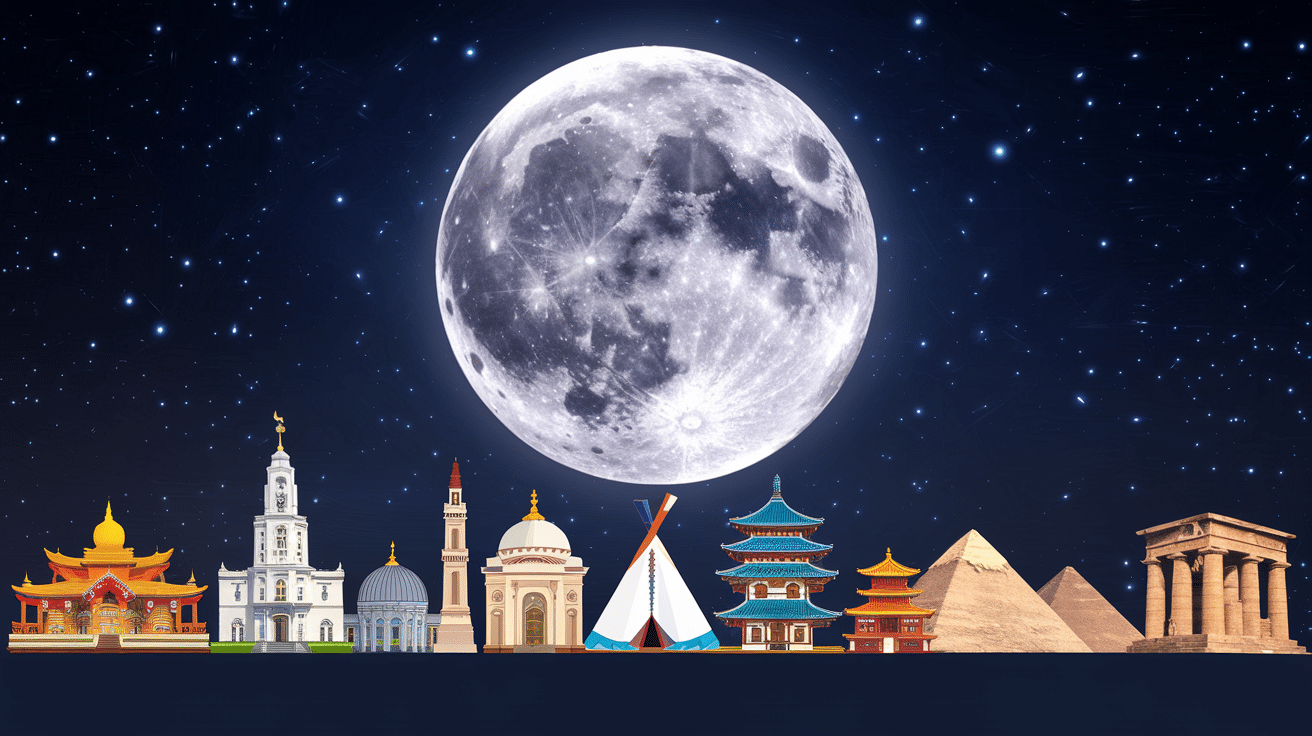
| Religion/Culture | Full Moon Significance | Sleep Connection | Spiritual Practices |
|---|---|---|---|
| Buddhism | Marks Buddha’s birth, enlightenment, and death during Vesak. Represents spiritual illumination and awakening. | Monks often remain awake during full moon nights for meditation and spiritual practice. | Meditation sessions are extended, with special ceremonies performed at temples. Practitioners recite mantras and observe precepts. |
| Hinduism | Associated with several deities, particularly Chandra (moon god). The Purnima (full moon) is considered highly auspicious. | Practitioners may intentionally stay awake to perform spiritual practices and rituals. | Many festivals occur on full moon nights, including Guru Purnima and Raksha Bandhan. Bathing in sacred rivers during full moons is believed to be spiritually purifying. |
| Indigenous American | Viewed as a time when spiritual energy is strongest. Each full moon has a specific name and purpose (Harvest Moon, Wolf Moon, etc.). | Wakefulness during full moons is considered a gift that allows connection with ancestors and spirit guides. | Vision quests, sweat lodges, and ceremonial dances often coincide with full moon cycles. Under moonlight, sacred objects are charged. |
| Islamic | While not having specific religious significance, many Islamic calendrical events are determined by moon sightings. | Traditional texts mention the prophet Muhammad’s increased worship during full moon nights. | Some Muslims practice additional prayers or dhikr (remembrance of Allah) during bright moonlit nights. |
Emotional and Energetic Shifts During Full Moon Nights
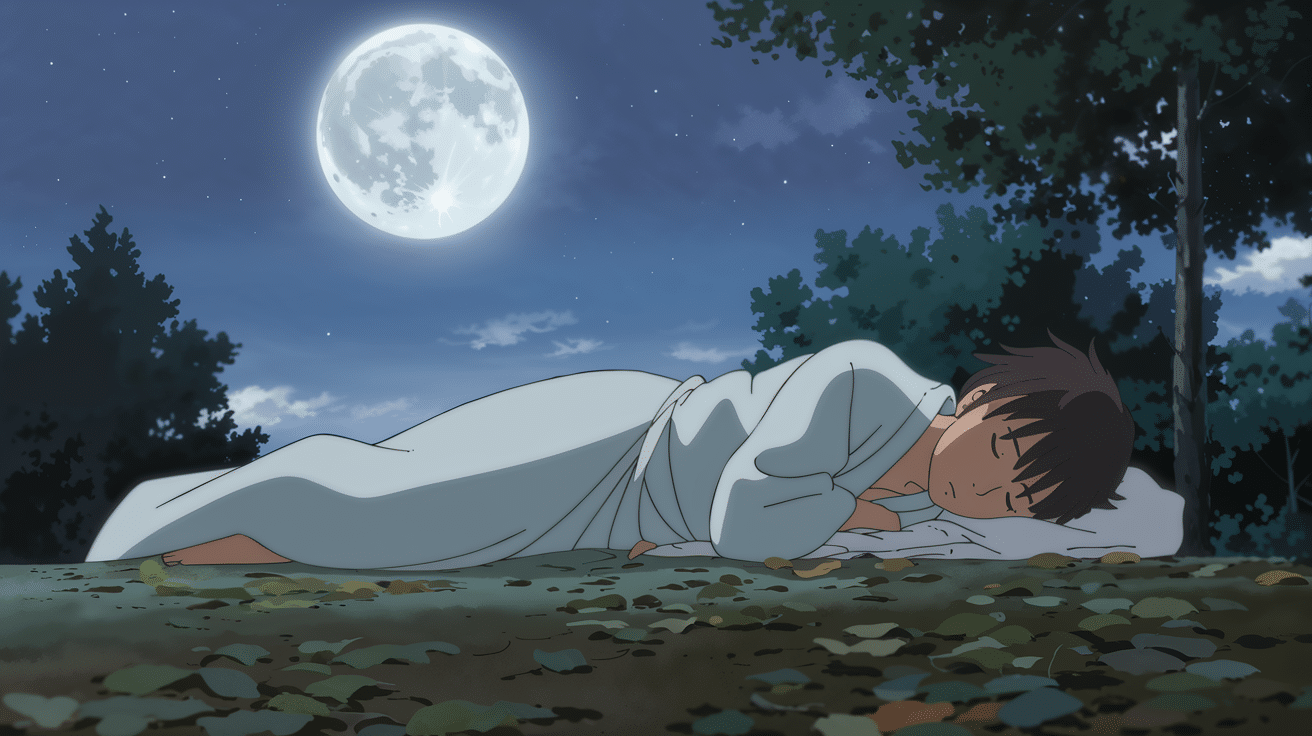
You might notice your emotions intensify and your energy levels fluctuate when the full moon brightens the night sky. This celestial event doesn’t just illuminate the darkness—it also illuminates aspects of your inner landscape that normally remain hidden.
During full moon nights, many people report experiencing:
- Heightened sensitivity to others’ emotions and energies
- More evocative dreams or unusual dream content
- Sudden clarity about situations that previously felt confusing
- Unexpected emotional releases or breakthroughs
The lunar energy tends to bring subconscious material to the surface of your awareness.
While this can feel uncomfortable, it offers a valuable opportunity for healing and integration.
- Increased creativity and inspiration often accompany full moons
- Physical symptoms like headaches or digestive issues might temporarily intensify
- Relationship spirits sometimes become more charged or revealing
Many spiritual traditions view this emotional amplification as purposeful rather than problematic.
The full moon acts as a cosmic spotlight, helping you see what needs to be addressed in your life.
Your sleep disturbances during this time might actually be your body’s way of creating space for this important inner work.
Summing it Up
Your sleepless nights during the full moon aren’t just random insomnia; they’re part of an ancient cosmic rhythm experienced by humans throughout history.
When you find yourself wide awake under lunar light, remember you’re participating in a natural phenomenon that transcends time and culture.
This awareness alone can transfigure frustration into fascination.
Rather than fighting against these wakeful hours, try embracing them as opportunities for spiritual connection and self-fulfillment.
The practices shared in this guide offer pathways to work with, rather than against, these powerful energies.
The next time the full moon keeps you from slumber, perhaps you’ll see your wakefulness differently not as a sleep disorder to overcome, but as an invitation to greater awareness, a monthly opportunity to commune with the universe and your inner wisdom.


